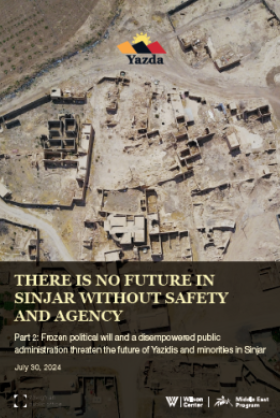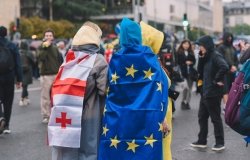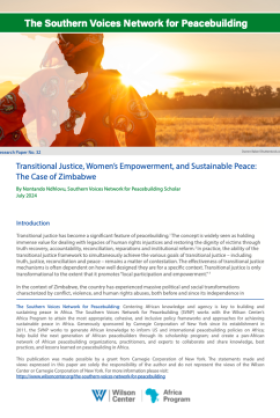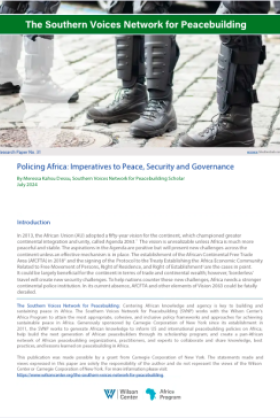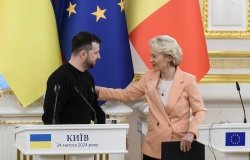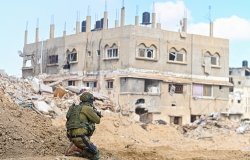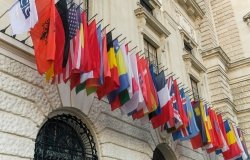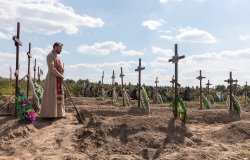A Genocide in Slow Motion
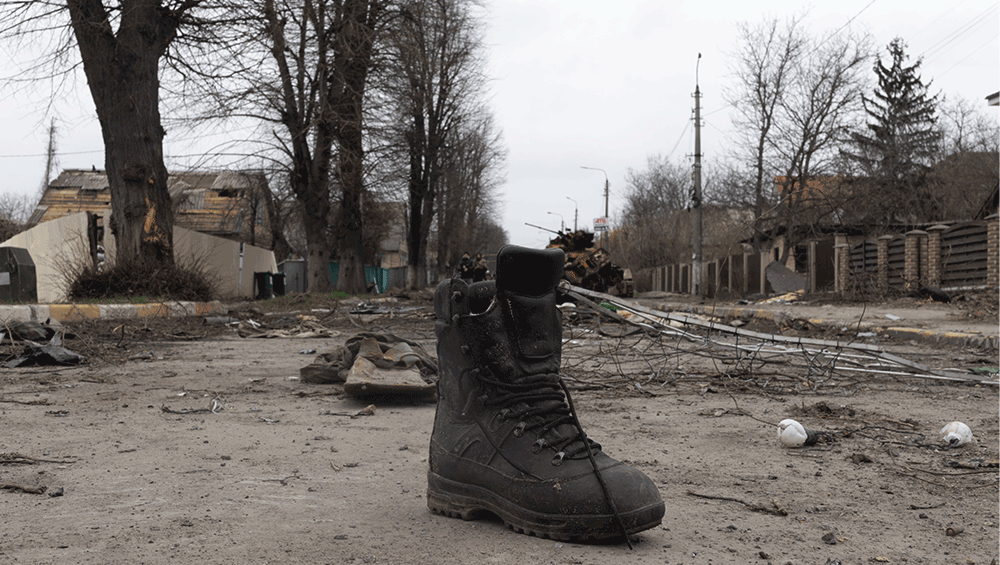
David Peinado Romero / Shutterstock.com
Debating whether President Biden’s recent assertion that the Russian aggression against Ukraine constitutes a genocide is more a manifestation of his unscripted rhetoric or a real U.S. policy shift is a silly distraction. What counts is what the Russians are really up to in Ukraine. Did we really need the horrifying pictures from the massacres in Bucha and other villages and the horrific fate administered to Mariupol to understand President Putin’s gameplan to destroy any semblance of Ukrainian independence and free spirit, and to kill or expel those who stand for it? Was it not enough to listen to the statements coming from him and his sycophants about “denazifying” Ukraine while bearing in mind what the Russians had previously done, under the cover of media blackout, in both Syria and Chechnya?
Russian actions to date already come remarkably close to meeting the classical definitions of a genocide: deliberate action aimed at killing, exiling, and hurting a large number of people from a particular nation or ethnic group with the aim of its destruction. What lies ahead is even more frightening now that the Kremlin is digging in its heels and stepping up the effort to both secure some gains at almost all cost, while legitimizing this heroic existential struggle, castigating as traitors those Russians who oppose it. And charging no other than the “Butcher of Damascus,” General Aleksander Dvornikov, to finish things off, all with the blessing of Patriarch Kyrill of the Russian Orthodox Church, who assures Putin that he is doing God’s bidding.
Must we wait for them to take their ruthless campaign to the next level before we accept the sobering reality that what we are witnessing unfold in front of our eyes is more than vindictive, merciless, and indiscriminate aggression, but an approximation of a genocide, and act accordingly? It may be that legitimate misgivings about the wisdom of NATO extension eastward and the concerns it has kindled in Russia held us back from recognizing what is unfolding. Perhaps the very prescient months-long intelligence warnings of what was coming inured our sensitivity to the shocking reality when it finally happened. Perhaps it was the deep-rooted wishful thinking that Europe (unlike other continents) would no longer witness such a catastrophe that predisposed us to dismiss the warnings. It is also possible that our difficulty is rooted in the painfully slow pace at which this tragedy is unfolding (largely thanks to Ukrainian courage and persistence) that makes it difficult for us to absorb the scale of human and other loss that has accumulated after six weeks of fighting and grasp the grim trajectory of what comes next.
We should be under no illusion of what is coming: a prolonged, disastrous bloodbath, with consequences that will reverberate the world over. That most of the world’s population would not unite against the atrocities and their perpetrators (evidence by the attitudes of China, India, and many African and Latin American states) does not absolve us from the responsibility to join with allies and partners to bring this tragedy to closure forthwith. We can no longer let prudent caution and geopolitical considerations prevent us from taking the necessary steps to foil Putin’s grand design to reverse the “tragic historical collapse of the Soviet Union,” walk back the separation of the slave nation and deal a fatal blow to Ukraine’s aspiration to chart its own independent, sovereign Ukrainian future. What is at stake is far bigger than Ukraine. It is a test of our identity as citizens of the world and custodians of world order, that while highly imperfect no longer tolerates a genocide.
To its credit, the Biden administration (with a healthy dose of British support) has delivered on its promise to lead the West to adopt unprecedented economic (and increasingly cultural) retaliation against Russia. It is also arming Ukraine with defensive weapons and providing them with actionable intelligence and moral support. The private sector has weighed in too, complementing governmental action. Taken together with heroic fighting by the Ukrainians, these already exact a staggering toll from Russia and Russians, which is bound to mount much further over time.
But just as early Western threats of retaliation failed to deter Putin from launching this war, actions taken to date will not dissuade him from escalating its savagery further, even in the face of the operational difficulties they have encountered. Reinforced by Chinese political equanimity and encouragement derived from the “partnership that knows no limits,” Belarusian collusion, and massive repression back home, he is pressing ahead. Ominous signs abound that much worse lies ahead, and soon enough, as no acceptable “off ramp” looms on the horizon.
It no longer works to look at what we face solely as a grave security threat to the international system, even if we admit that it may be the worst of its kind since WWII. Such framing has tamed our risk appetite to confront Putin, emboldening him to pursue his revanchist agenda. In fact, our collective risk averse response to a person infused by such messianic zeal and possessing sizeable conventional and nuclear arsenals, has largely been confined to a collective punishment of Russia as a state, and most acutely its innocent population, which has limited understanding of what Putin set out to do and how, and has close to zero influence on his conduct.
Some of us will surely continue to pin hope on the ever-dimmer odds of miraculously finding an acceptable diplomatic arrangement to avert the full catastrophe. Others quietly pray for a palace coup in Moscow that would bring saner people to power, much as we have no practical tools to help it materialize and even less confidence that it will happen in time to avert the Ukrainian genocide, or that any viable Putin’s successor will behave very differently. Such attitude is more likely to yield the construction of a Ukrainian Holocaust Museum on the National Mall than to stop the carnage and the suffering.
Washington, indeed NATO, must now abandon its understandable yet excessive caution in responding to the tragedy. Arming the Ukrainians with inherently limited and inferior weapons, sanctioning Russia (though leaving its energy exports unscathed), and looking after millions of Ukrainian refuges are all vital but are no longer enough. NATO should still refrain from offensive military operations against Russian forces anywhere or deploying ground and air forces to Ukraine. However, it is possible to do a lot more while avoiding an all-out confrontation with Russia. NATO should immediately declare Ukrainian territory to the West of the Dnieper a humanitarian safe haven which it is willing to protect. It should also extend its missile and air defenses shield to defend Ukrainian population centers, vital supplies, and humanitarian evacuation outside the Donbas from Russian airborne attacks. These will not stop the war nor spare extensive casualties and destruction. But they can help stop a heartbreaking tragedy from turning into a full-fledged genocide.
We are in overtime to take action for what humanity expects: prevent an imminent genocide while we are still able to do so.
* * *
Ariel E. Levite, a senior Fellow at the Carnegie Endowment for International Peace recently completed a Policy Fellowship at the Woodrow Wilson International Center for Scholars. The views he expresses are his own and do not represent either institution.
About the Author
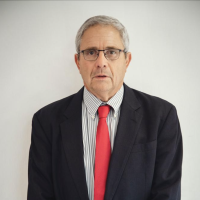
Ariel Levite
Senior Fellow, Carnegie Endowment for International Peace





